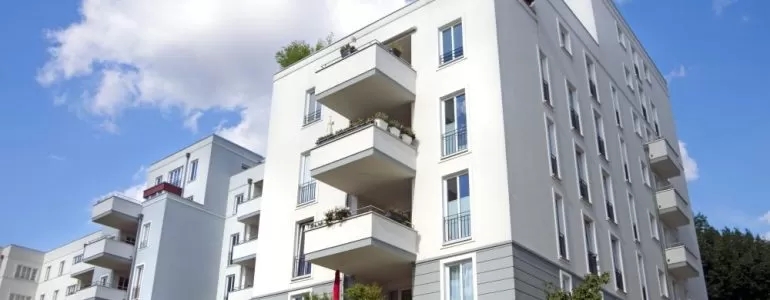
In practice, we often encounter the responsibility of a property developer for defects in common parts of real estate. Such cases are on the rise—housing communities increasingly file lawsuits against developers, winning cases and obtaining substantial compensation.
What is a housing community?
A housing community is an organizational unit mentioned in Article 33(1) of the Civil Code, created by all owners of units in a given building. The housing community can acquire rights, incur obligations, sue, and be sued.
Who is entitled to claims for warranty for defects in common parts of real estate?
Claims for warranty are exclusive to the buyer (owner) of the property.
This directly follows from Article 556 of the Civil Code: The seller (developer) is liable to the buyer (unit owner) if the sold item (unit) has a physical or legal defect. Each unit owner in the building is therefore entitled to pursue a claim against the developer because they have a stake in the entire construction investment.
Each co-owner can perform any actions and pursue any claims that aim to preserve the common right. (Article 209 of the Civil Code)
Legal protection against potential dangers caused by defects related to the building’s construction falls under conservative actions, as described in the aforementioned Article 209 of the Civil Code.
In the jurisprudence of the Supreme Court—decision of June 21, 2013 (file No. I CZ 53/13), the Court stated that according to Article 209 of the Civil Code, “each co-owner can perform any actions and pursue any claims that aim to preserve the common right. A housing community, to which co-owners effectively transferred their rights to pursue claims for warranty aiming at rectifying building defects, can undoubtedly assert such a claim.”

When can the community assert such claims on behalf of unit owners?
A housing community to which co-owners have effectively transferred their rights to pursue claims for warranty aiming at rectifying building defects can undoubtedly assert such a claim.
“The community has the legitimacy to assert claims transferred to it by transfer. The transfer of claims by each co-owner of common property creates material legitimacy. Each of them is entitled to a ‘partial’ right to pursue these claims, determined by the size of their share in common property, and the source of these claims is the sales agreement of the unit. (…) These claims can be transferred to any third party, including the housing community.”
- The Appellate Court in Katowice in the judgment of August 19, 2016 (file No. I ACa 196/16)
How to effectively conclude an assignment agreement with the housing community?
Before filing a lawsuit against the developer, members of the housing community should take the following resolutions:
- A resolution authorizing the community’s board to take actions exceeding the scope of ordinary management of common property—entering into assignment agreements for claims belonging to individual unit owners for damages related to defects in common property.
- A resolution authorizing the community’s board to take actions to pursue claims against the developer.
- A resolution authorizing the community’s board to grant procedural power of attorney in the matter.
On what basis can the community formulate claims against the developer?
A housing community can pursue claims against the developer in two ways. Firstly, based on the provisions of the Civil Code concerning warranty (Article 560 of the Civil Code and subsequent articles) and the provisions concerning compensation for improper performance of a contract (Article 471 of the Civil Code).